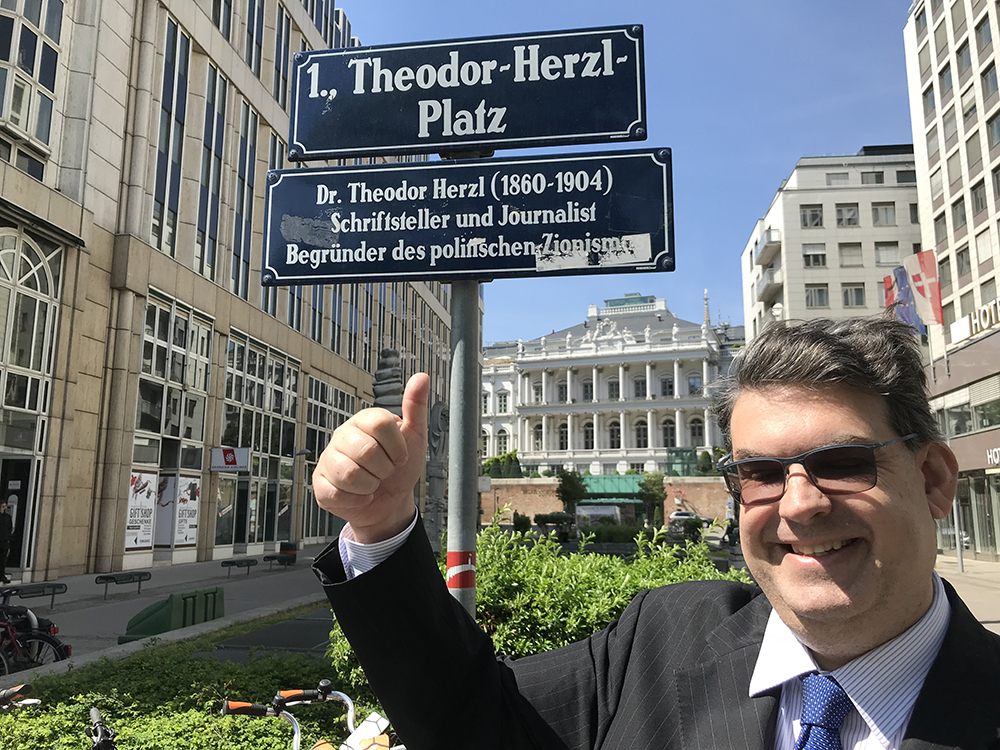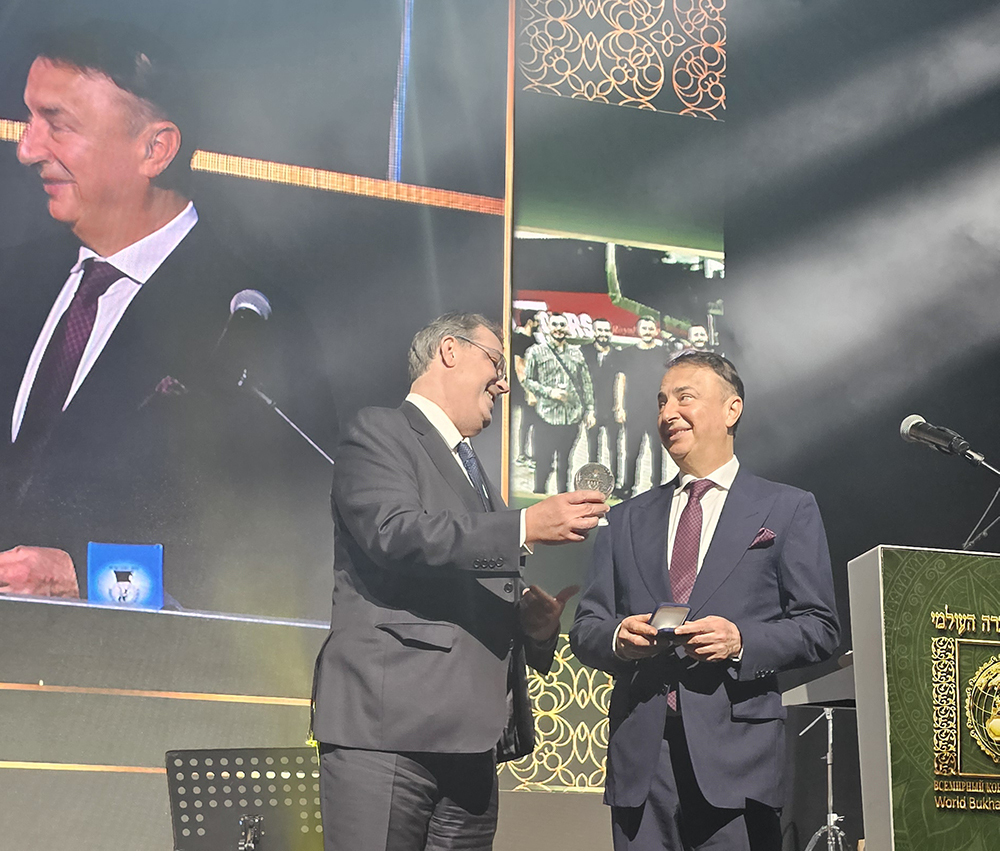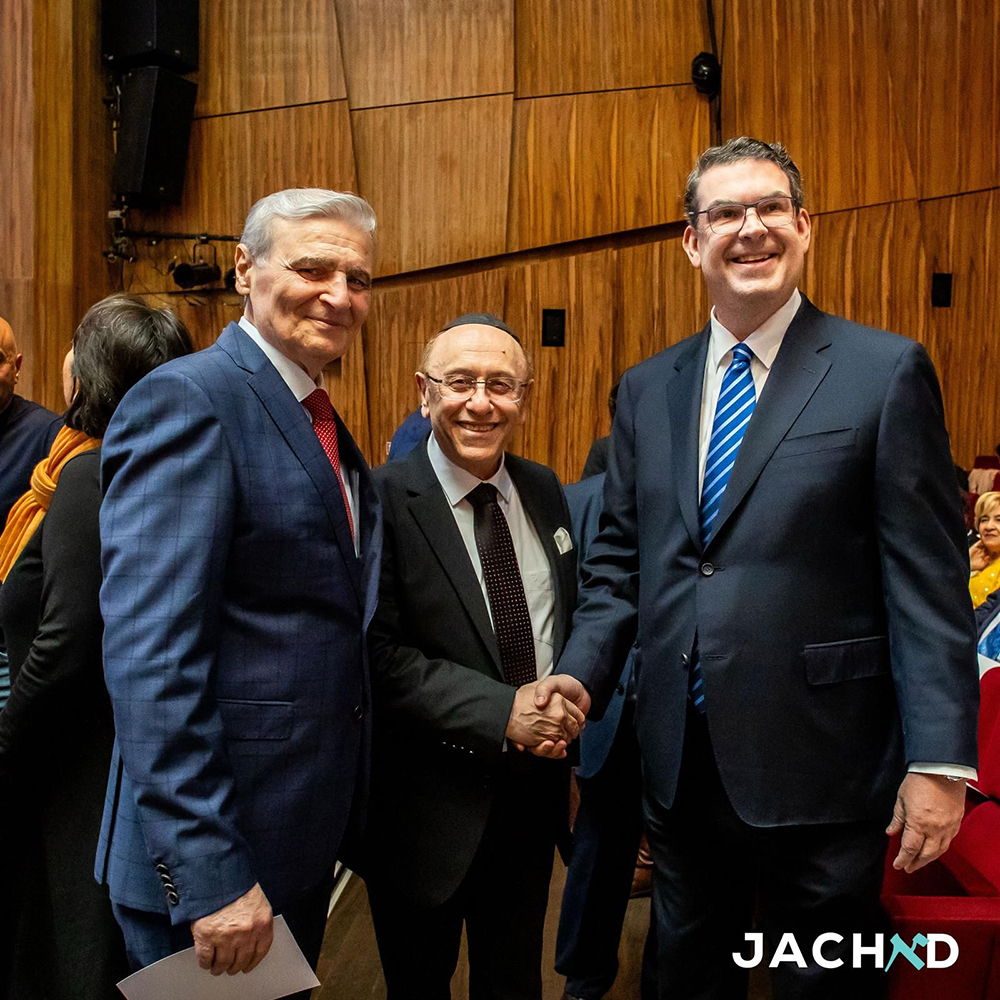
Erin Levi
Oskar Deutsch has been a pillar of Vienna’s diverse Jewish community for over three decades. Born in 1963 to Holocaust survivors—his father from Romania and his mother from Lvov (former Soviet Union)—Deutsch represents the resilience of Austria’s post-war Jewish revival.
Since joining the Jewish Community of Vienna’s board in 1993, he has served as deputy president from 1999 to 2011 and as president since 2012, winning three consecutive elections to lead what he describes as a «very proud, not so big, but very Zionist Jewish community.»
During a recent family visit to New York, including a Shabbat in the Hamptons, Deutsch spoke with me about the unique parliamentary structure of Vienna’s Jewish community, the growing influence of Bukharian Jews in Austrian Jewish life, and the ongoing fight against antisemitism in Europe.
Erin Levi: Guten Morgen, Oskar. You mentioned this is your third time in New York. What brings you here?
Oskar Deutsch: Guten Morgen, Erin. I see you know some German. This is a personal visit with my family. We had the invitation of Rabbi Mark Schneier from the Hamptons, and we went for Shabbat last weekend. Unfortunately, I didn’t get to meet with anyone from the Bukharian community on this trip because my children got sick and I had to babysit them. But they are okay now.

EL: That’s a pity, but I’m glad they’re well. You’ll just have to come back.
Tell me about the structure of Vienna’s Jewish community. It’s fascinating that you essentially have your own parliament. How long has it been around?
OD: It’s more than 100 years old—much older than the State of Israel. We work very closely in a coalition with our friends from the Bukharian community. My deputy, the community‘s vice president, is Michael Galibov, and we are working very closely together. We have elections every five years, like in every democracy. I was already elected three times.
EL: Yes, I interviewed Michael Galibov upon the 50 th anniversary of the Bukharian community in Vienna. Remind me, how big is the Bukharian Jewish population in Vienna these days?
OD: We have around 25% of the Jewish population of Vienna that is Bukharian. That’s quite significant, and it’s why this coalition work is so important.
EL: Can you tell me about your own background as an Austrian Jew?
OD: The question is, what is a 100% Austrian Jew? My late father was born in Cluj, Romania, and my mother comes from Lvov—that was Ukraine, Austria-Hungary, Russia, Poland—it changed all the time. And I was born in Vienna. But if you look at people, not only people of the Jewish community in Austria but also non-Jews, many have parents who were not born in Vienna. So I consider myself a typical Viennese Jew with parents coming from the East.
EL: What was your mother’s experience during the Holocaust?
OD: The parents of my mother felt that they would not survive the Holocaust, the Shoah. So they put her, as a baby, with friends, non-Jewish friends. The non-Jewish friends put her in a monastery. That saved her life. Only friends of my mother’s parents, who were killed in the Shoah—we don’t know when, we don’t know where—friends of her parents knew that she was in the monastery, and they picked her up. They went from Lviv to Krakow, from Krakow to Prague. My mother graduated in Prague. Then they decided to leave Prague because of the growing antisemitism in Communism, and they wanted to go through Vienna to the United States. But they stayed in Vienna. If they hadn’t stayed in Vienna, maybe I would be in the United States. But then she wouldn’t have met my father…

EL: What was it like growing up Jewish in Vienna in the decades after the war?
OD: Before the war, there were 200,000 Jews in Austria. 70,000 were killed. The rest, most of them, left Vienna. I come from a religious house. We were and are Shomer Shabbat. I went to a cheder—that’s a Jewish religious afternoon school. After regular Austrian school, from when I was six years old until I think 13 or 14 years, I went five times a week to learn Chumash and Gemorah and everything. It was a good and meaningful childhood.
I’m an only child—I had no brothers, no sisters—so my parents cared very much for me, and it was a good Jewish life. We often went on vacation to Israel, and that’s where my love for Israel actually started. I was in Bnei Akiva, the youth organization, and when there was no madrich from Israel, I was organizing the whole movement in Vienna.
EL: Did you personally experience antisemitism growing up?
OD: There was a lot of antisemitism. I was reading the newspapers—there was no internet at that time—and watching the news on TV. There was a lot of antisemitism. But personally, I didn’t feel it very much.
Also, until Chancellor Franz Vranitzky in the late 1980 s, history lessons in Austrian schools didn’t mention the Holocaust. History stopped after World War I—on purpose. It wasn’t until the 1980 s that Austria acknowledged it was not only a victim, but also partly responsible for what happened in the Shoah. Since then, there’s been a real shift.
Chancellor Vranitzky gave powerful speeches and declared that Austrians were perpetrators too—both in the Austrian parliament and at Hebrew University in Jerusalem. You can look him up; he truly brought about change, a change in the minds of many, many Austrians.

EL: What do you see as the key to Jewish unity, especially given the diversity within Vienna’s Jewish community?
OD: That’s the problem of Jews—not to work together—but we have to work together in such an antisemitic environment all over the world. We have to stick together and to work together and to fight together. Diversity is an integral part of Judaism, our people were created as a unity of differences. This is why our coalition with the Bukharian community but also with other parties with different backgrounds works so well. We understand that unity is strength.
EL: Any final thoughts for the Bukharian Jewish community in New York?
OD: The Bukharian Jewish community is incredibly important, not just in Vienna but globally. The connection between our communities, whether in Vienna, New York, or Israel, strengthens all of us. We’re all part of the same story, the same struggle, and the same hope for the future.
Oskar Deutsch can be reached at o.deutsch@ikg-wien.at. The Jewish Community of Vienna represents approximately 8,000 Jews, making it one of the largest Jewish communities in German-speaking Europe.
